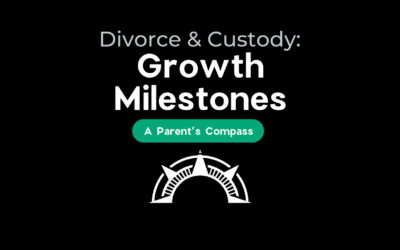What Makes a Stable Home for Children During and After Divorce?
When a divorce happens, disruption occurs. That fact is indisputable. And if you have children, the stress multiplies, but what matters is how each family copes. When children are involved, parents need to rise above their concerns, hurt, and pain to consider their children’s needs.
Many factors are involved when deciding how much time children spend with each parent and which home will be the primary residence.
And while there’s no absolute method to guarantee the best decision, my years of experience have allowed me to work with many families as they make successful life transitions. I’ve seen that children need reassurance that parents will always love and care for them—that the essence of the family has not changed.
Children feel loved when they see you acknowledge their needs.
Stability matters to a child during and after a divorce.
Of course, children would prefer that both parents live happily together in the family home. But think of family like a tree swaying in the wind. It stays strong when it is flexible.
When determining which parent should be the primary caretaker or whether mom’s or dad’s house is the better place to be their primary residence, there are a lot of considerations.
However, these are the most critical factors to create stability for children during and after divorce.
- Safety, both physically and emotionally, is the first important consideration. Domestic violence, criminal behavior, untreated substance abuse or mental health issues in the home are major red flags. A house doesn’t need to be fancy, but it needs to be clean, secure, and calm.
- The child’s age matters. For example, during infancy and toddlerhood, the child is most bonded to their primary caregiver, and separations are stressful. Young people are more independent in early adolescence but often have strong attachments to friends. Parents need to consider vulnerable stages of child development and the needs of each child. Children with special needs often require unique considerations, too.
- Disruption to the child’s routines, school, childcare, and access to family members all affect the child. Moving is tough for all of us, but especially for kids. The change is more manageable if parents can keep children in a familiar environment during a divorce.
- Despite any hurt or angry feelings, maintain a working relationship with the other parent; you’ll spare your child a lot of pain. Avoid critical comments about your ex-partner around the kids, and never make the child feel they must choose one parent over the other. That’s never fair, and it hurts.
- If one parent’s career requires a lot of travel, frequent schedule changes, or relocations, that may influence decisions. On the other hand, remote working options allow a parent to maintain the crucial stability of the home. I know financial needs often spike during a divorce, but let’s strive to maintain balance.
- Often, one parent scheduled doctor appointments and play dates, checked the homework and communicated with the school. It’s necessary to handle all those responsibilities and maintain continuity whenever possible.
Clear communication between co-parents will make things easier as you divide parenting duties. You may feel slightly uncomfortable initially, but you may find new ways to bond with your kids as you cook, clean, and challenge yourself to learn new skills
And lastly, remember that this is an emotionally vulnerable time for everyone. Change is hard, even when it’s for the best, and it will take time to achieve a new normal for your family. Look at each situation objectively as you put your children’s interests first.
Develop a support system of friends, family, and professionals to be on hand. Here at Lazar Law, we’re prepared to help you deal with these challenges as you move through divorce and on to your new life. We have the skills and experience you need to maintain a stable home and relationship with the children you love.



